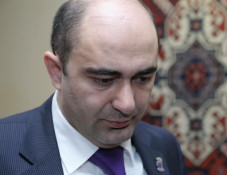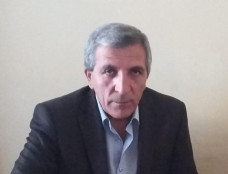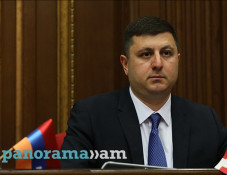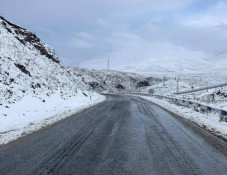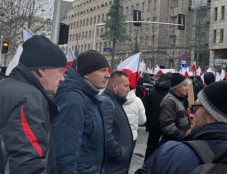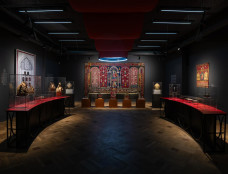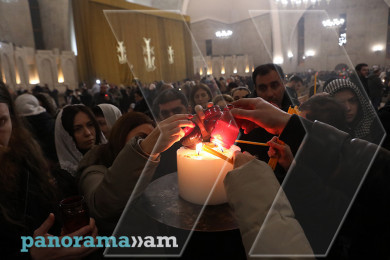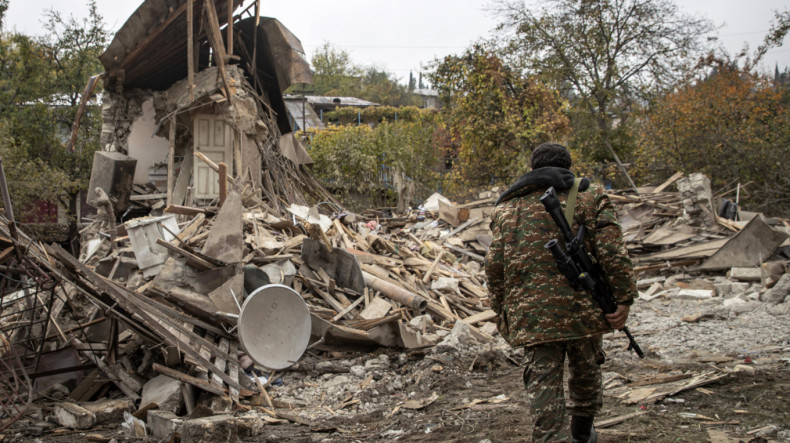
Modern Diplomacy: Azeri, Turkish war crimes against Armenians must not go unpunished
The Modern Diplomacy magazine has published an article on the war in Nagorno Karabakh.
The author reminds that the war launched by Azerbaijan and Turkey against the Armenian Republic of Artsakh (Nagorno Karabakh) in the South Caucuses on September 27 has been halted through an agreement, which was brokered by Russia and imposed on Armenia. Based on the circulating agreement, Armenians must relinquish most of their homeland in Artsakh to Azerbaijan by December 1, forcing any Armenians living in those regions to depart before that date.
"During their indiscriminate shelling of Artsakh, the aggressors – Azerbaijan, and Turkey, accompanied by Syrian jihadist forces – have committed many war crimes against Armenians. They have murdered civilians and injured journalists. They have burned villages, forests, and churches. They have tortured and beheaded Armenians, and executed prisoners," the source wrote, recalling numerous reports by international media and accounts about the committed crimes. among them the use cluster munitions documented by Human Rights Watch (HRW).
"The false, obsessive belief that Artsakh belongs to Azerbaijan has resulted in an ethnic cleansing against indigenous Armenians from their lands. The area called Artsakh, originally one of the ancient provinces of Armenia, has preserved a majority Armenian population throughout the centuries. Despite this, Artsakh was annexed by Soviet dictator Joseph Stalin to the New Soviet Republic of Azerbaijan in the early 1920s. Armenian peaceful requests for self-determination were violently punished by Azerbaijan," the magazine says.
It is reminded that under Azeri control, Armenians were subject to severe persecution such as pogroms in Sumgait and Baku from 1988 to 1990. 26 years later, Armenians in Artsakh are once again assaulted by Azerbaijan. This time, arms supplies and diplomatic support from Turkey helped give Azerbaijan the upper hand in the conflict. Several news agencies, governments and the United Nations have also reported that Turkey sent jihadist terrorists from Syria to support Azerbaijan in its fight against the Armenians.
The author recalls the statement by the Office of the High Commissioner for Human Rights (UN Human Rights) about the mercenaries fighting in Karabakh.
“The UN Working Group on the use of mercenaries said there were widespread reports that the Government of Azerbaijan, with Turkey’s assistance, relied on Syrian fighters to shore-up and sustain its military operations in the Nagorno-Karabakh conflict zone, including on the frontline. The fighters appeared to be motivated primarily by private gain, given the dire economic situation in the Syrian Arab Republic, the UN experts said. In case of death, their relatives were reportedly promised financial compensation and Turkish nationality.
“The way in which these individuals were recruited, transported and used in and around the Nagorno-Karabakh conflict zone appeared consistent with the definition of a mercenary, as set out by relevant international legal instruments, including the International Convention against the Recruitment, Use, Financing and Training of Mercenaries, to which Azerbaijan is a party,’ said Chris Kwaja, who chairs the Working Group.
It notes that prior to the war, Artsakh’s population was around 150,000. Turkish and Azeri aggression against the region has caused massive destruction on civilian infrastructure including homes and hospitals and the displacement of about 90,000 Armenians. On October 23, a group of genocide scholars issued a statement “on the imminent genocidal threat deriving from Azerbaijan and Turkey against Artsakh.”
"Completely abandoned by the international community and faced with an existential threat, Armenia had to sign an agreement which allows Azerbaijan to take over much of Artsakh. With 60% of Artsakh destroyed and the remainder of land to be surrounded by hostile Azeri forces, many indigenous Armenians who have lived in Artsakh for generations see no choice other than to flee their homeland," the author wrote.
"Attacks against Armenians in the South Caucasus and Europe demonstrate that this war is not only about land. It is about pan-Turkic, expansionist aspirations of Turkey and Azerbaijanas well as their unrelenting, genocidal hatred against Armenians. As was the case during the 1915 Armenian genocide by Ottoman Turkey, the international community has once again abandoned Armenians, who are an indigenous and peaceful people. If new and effective steps are not taken by the civilized world immediately, neo-Ottomanism, pan-Turkism and jihad will win through the agreement imposed on Armenia.
"To guarantee the return of Armenians to their ancient homeland and to prevent the complete erasure of the remaining Armenian cultural heritage by totalitarian Azerbaijan, Western governments must officially recognize Artsakh. The West must let dictators know that their war crimes and genocidal ambitions will not go unpunished," concluded the author.
Newsfeed
Videos








